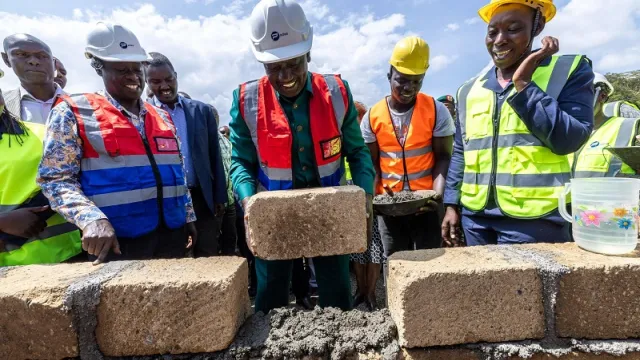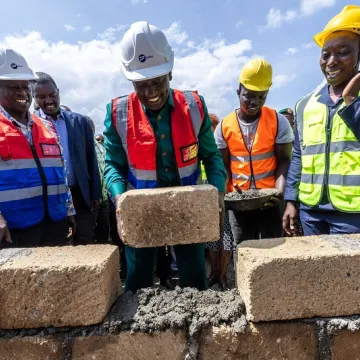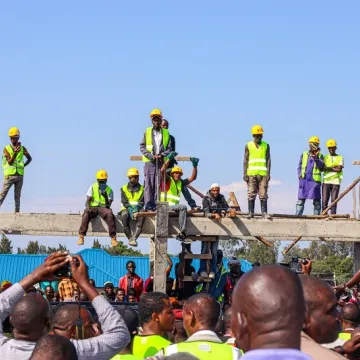Cement usage dips as Kenya’s construction sector posts mixed signals

The 2025 Economic Survey figures come at a time when President William Ruto's government is under pressure to deliver on its ambitious affordable housing agenda, which aims to bridge the growing housing deficit and stimulate job creation.
Kenya’s construction industry posted mixed performance in 2024, with new data showing a slowdown in cement consumption and private sector jobs even as building approvals and public hiring edged up slightly.
According to the 2025 Economic Survey by the Kenya National Bureau of Statistics (KNBS), cement consumption declined by 7.2 percent to 8.537 million metric tonnes in 2024, reflecting a cautious slowdown in construction activity at a time when the Kenya Kwanza administration has been championing homeownership agenda.
In contrast, cement imports rose by 16.1 percent to 39,700 tonnes, the survey shows, possibly indicating gaps in domestic supply or shifting preferences in sourcing.
Kenya's construction sector—a key barometer of economic health—has traditionally been driven by both public infrastructure investment and private real estate development.
However, in 2024, employment data showed a decline in private sector construction jobs, dropping to 223,400 employees, down from 226,300 in 2023. This contraction in private sector engagement may be attributed to rising costs, delayed projects, or waning investor confidence.
Conversely, public sector employment in construction rose modestly to 9,900 employees in 2024 from 9,700 in 2023, suggesting some resilience in government-driven projects.
In a seemingly optimistic turn, the value of private building plans approved by the Nairobi City County increased slightly to KES221.6 billion, up from KES220 billion a year earlier. This uptick is a pointer to sustained interest in real estate investment within the capital, albeit with slower execution.
On the other hand, government-led housing initiatives took a sharp hit. The value of public residential building works completed by the State Department for Housing and Urban Development (SDHUD) plunged to KES4 billion in 2024, reflecting a huge decrease from KES11 billion in 2023.
This contraction was mirrored by a dramatic 50.7 percent dip in the number of residential units completed, from 3,360 units in 2023 to 1,655 units last year.
The 2025 Economic Survey figures come at a time when President William Ruto's government is under pressure to deliver on its ambitious affordable housing agenda, which aims to bridge the growing housing deficit and stimulate job creation.





